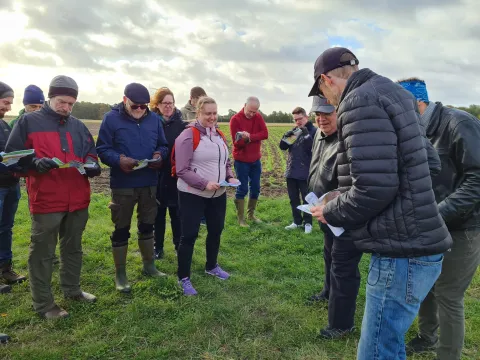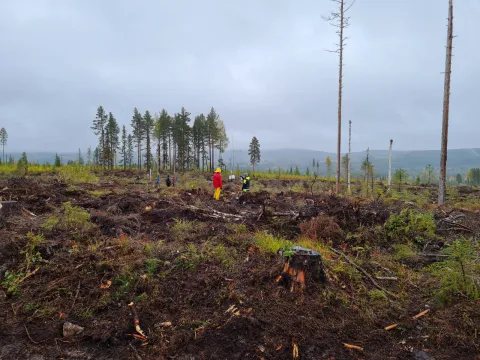Including SITES in Research Projects
SITES enables researchers to enhance field-based ecosystem research by supporting a network of field stations across Sweden. SITES offers expert technical competence at the stations for helping plan and implement research projects and provides open access to local monitoring and remote sensing data as well as contextual information about the surrounding ecosystems. Taken together, SITES provides a rich context for setting up field sampling and experiments at one or multiple stations across Sweden.
Science enabled by SITES integrates observations made at scales ranging from molecules and organisms to ecosystems and landscapes. This approach allows the study of linkages between various ecological and biogeochemical aspects – which can be further coupled with ecosystem services such as agricultural and forestry production, access to clean water and maintained biodiversity.
Access to SITES
Access to the SITES infrastructure and data is free of charge, however, SITES should be acknowledged. All data are openly available, contingent on acceptance of a data policy agreement and due recognition of the data provider. If projects need assistance or support beyond what is provided by SITES as a VR-funded infrastructure, a fee is charged at the discretion of the station. Station staff have broad competence to support researchers with advice and technical assistance.
SITES Provides
- Open data access – to the SITES Data Portal with data on key ecosystem variables from historical and ongoing monitoring activities at the stations, providing context and augmenting new data collected. Further comprehensive maps and documentation on the ecosystems, catchments and sampling schemes surrounding the research stations are available. Through the Thematic Programs SITES Water and SITES Spectral, lake and stream monitoring data and terrestrial spectral data, respecivitly, is openly avaliable and routinely updated.
- Physical access – users can conduct experiments and/or measurements at one or several of SITES Research Stations with technical and practical support provided by station staff
- Experimental access – users have access to long-term and large-scale ecosystem manipulation experiments beyond what is tractable for individual researchers or projects. In particular, SITES AquaNet offers access to mesocosm experiments in SITES lakes.
- Remote access – practical work, such as sample or data collection, is conducted on site by station staff
- Community access – a forum and platform for integrative ecosystem science community building, connections to international networks and infrastructures and access to resources, tools and data to develop and enable high-quality and integrated ecosystem science studies

If you’re interested in including SITES infrastructure in a grant application, this document will help guide you.

A searchable and informative map of SITES and INTERACT research stations as well as an application module for applying to select stations.